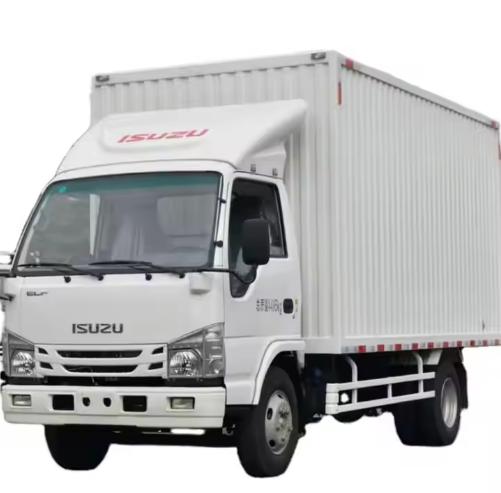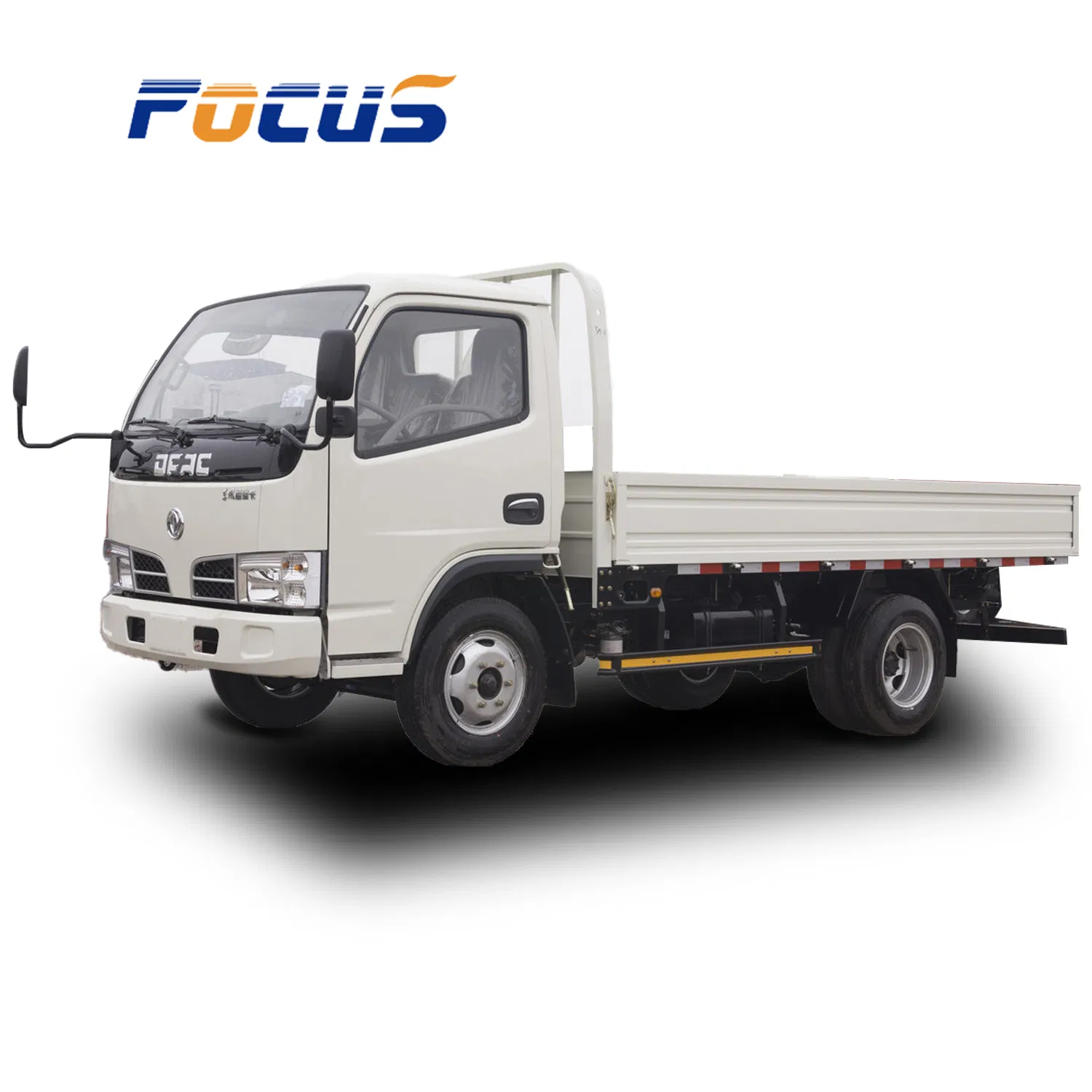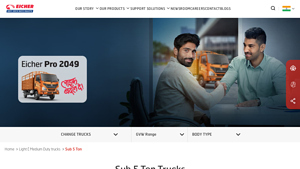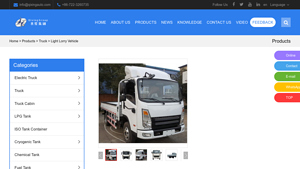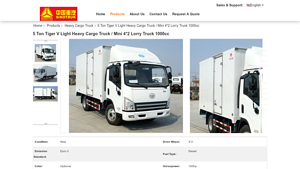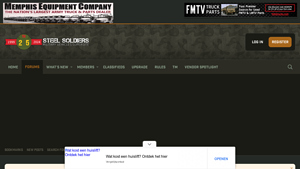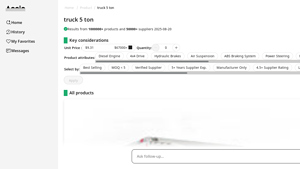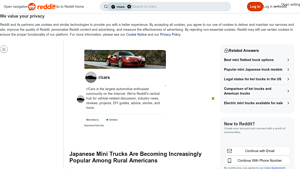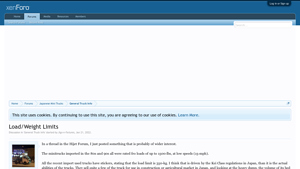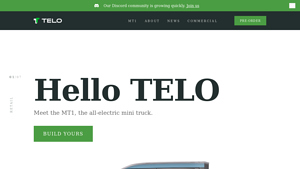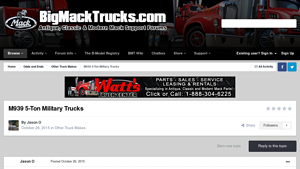Introduction: Navigating the Global Market for 5 Ton Mini Lorry Truck
In today’s competitive landscape, sourcing a reliable 5 ton mini lorry truck can be a daunting challenge for international B2B buyers. This guide aims to simplify the decision-making process by providing in-depth insights into the various types of mini lorry trucks available in the global market, their applications across different industries, and essential factors to consider when vetting suppliers. From understanding the specifications that suit your operational needs to navigating the complexities of cost and logistics, this comprehensive resource is designed to empower businesses in Africa, South America, the Middle East, and Europe—including key markets like Vietnam and Nigeria.
As the demand for efficient transportation solutions continues to rise, the 5 ton mini lorry truck stands out as a versatile option for businesses looking to enhance their logistics capabilities. Whether you are in construction, agriculture, or retail, these trucks offer a perfect blend of size and power, making them ideal for urban and rural environments alike. This guide will equip you with the knowledge to make informed purchasing decisions, ensuring that you select the right vehicle to drive your business forward. By exploring critical elements such as performance, compliance with international standards, and potential suppliers, you will be well-prepared to navigate the global market with confidence.
Understanding 5 Ton Mini Lorry Truck Types and Variations
| Type Name | Key Distinguishing Features | Primary B2B Applications | Brief Pros & Cons for Buyers |
|---|---|---|---|
| Standard Cargo Truck | 4×2 drive, diesel engine, typically box-shaped cargo area | General cargo transport, logistics | Pros: Versatile, suitable for various loads. Cons: Limited off-road capability. |
| Refrigerated Mini Truck | Insulated cargo area with refrigeration unit | Perishable goods transport, food delivery | Pros: Maintains temperature, ideal for sensitive cargo. Cons: Higher maintenance costs. |
| Flatbed Lorry | Open cargo area with no sides or roof | Construction materials, machinery transport | Pros: Easy loading/unloading, flexible cargo options. Cons: Less secure for fragile goods. |
| Dump Truck | Hydraulic lift for unloading, typically with a box bed | Construction debris removal, bulk material transport | Pros: Efficient unloading, suitable for heavy loads. Cons: Limited to specific tasks. |
| Electric Mini Lorry | Electric-powered, eco-friendly design | Urban deliveries, sustainable transport | Pros: Lower operational costs, reduced emissions. Cons: Limited range and charging infrastructure. |
What Are the Key Characteristics of Standard Cargo Trucks?
Standard cargo trucks are the backbone of many logistics operations. With a 4×2 drive and a diesel engine, they are designed to handle a variety of loads effectively. Their box-shaped cargo areas provide ample space for general goods transport, making them ideal for businesses that require flexibility in their shipping operations. Buyers should consider the truck’s payload capacity and fuel efficiency to ensure it meets their operational needs.
Why Choose Refrigerated Mini Trucks for Perishable Goods?
Refrigerated mini trucks are essential for businesses that deal with perishable goods, such as food distributors and pharmaceutical companies. Equipped with insulated cargo areas and refrigeration units, these trucks maintain optimal temperatures during transit. While they are highly effective for transporting sensitive items, potential buyers should evaluate the costs associated with maintenance and energy consumption, as these can be higher than standard trucks.
How Do Flatbed Lorries Benefit Construction and Logistics?
Flatbed lorries offer a unique solution for transporting construction materials and machinery. Their open cargo design allows for easy loading and unloading, making them suitable for bulky items. However, buyers should be cautious as these trucks provide less security for fragile goods. Understanding the specific load requirements and securing options is crucial for businesses in construction and logistics.
What Makes Dump Trucks Ideal for Heavy Material Transport?
Dump trucks are specifically designed for transporting heavy materials such as sand, gravel, and construction debris. Their hydraulic lift mechanism allows for efficient unloading at job sites, which increases productivity. However, their specialized nature means they may not be as versatile for general cargo transport. Companies should assess their specific needs for material handling before investing in a dump truck.
Are Electric Mini Lorries the Future of Urban Deliveries?
Electric mini lorries represent a growing trend towards sustainable transport solutions in urban environments. These vehicles are powered by electricity, resulting in lower operational costs and reduced carbon emissions. However, their limited range and the availability of charging stations can be a concern for some businesses. Buyers should consider their delivery routes and the feasibility of integrating electric vehicles into their fleets.
Key Industrial Applications of 5 Ton Mini Lorry Truck
| Industry/Sector | Specific Application of 5 Ton Mini Lorry Truck | Value/Benefit for the Business | Key Sourcing Considerations for this Application |
|---|---|---|---|
| Logistics & Distribution | Urban deliveries and last-mile logistics | Enhanced efficiency in navigating congested city areas | Load capacity, fuel efficiency, and maneuverability |
| Construction | Material transport to job sites | Timely delivery of essential materials | Durability, payload capacity, and off-road capability |
| Agriculture | Transporting produce and equipment | Quick movement of goods from farm to market | Versatility in cargo handling and refrigeration options |
| Retail & E-commerce | Delivering goods to customers | Improved customer satisfaction through timely delivery | Customizable cargo space and tracking capabilities |
| Waste Management | Collection and disposal of waste | Efficient waste management and recycling processes | Compliance with local regulations and environmental standards |
How Is the 5 Ton Mini Lorry Truck Used in Logistics & Distribution?
In the logistics and distribution sector, the 5 Ton Mini Lorry Truck is primarily utilized for urban deliveries and last-mile logistics. Its compact size allows it to maneuver through congested city streets, making it ideal for delivering goods to retailers or consumers in densely populated areas. This vehicle addresses the challenge of timely deliveries, which is critical in maintaining customer satisfaction. For international buyers, particularly from regions like Africa and South America, sourcing trucks with high fuel efficiency and a robust load capacity is essential to maximize operational efficiency and reduce costs.
What Role Does the 5 Ton Mini Lorry Truck Play in Construction?
Within the construction industry, the 5 Ton Mini Lorry Truck serves as a reliable mode of transporting materials to job sites. This capability is vital for ensuring that construction projects remain on schedule by providing timely delivery of essential materials such as concrete, bricks, and tools. Buyers from Europe and the Middle East should prioritize trucks that demonstrate durability and can handle rough terrains, as construction sites often have uneven surfaces. Additionally, a higher payload capacity is crucial to minimize the number of trips needed, thereby enhancing productivity.
How Is the 5 Ton Mini Lorry Truck Beneficial for Agriculture?
In agriculture, the 5 Ton Mini Lorry Truck is employed to transport produce and equipment efficiently. This vehicle ensures that goods are delivered quickly from farms to markets, addressing the perishable nature of agricultural products. Buyers in regions like Nigeria and Vietnam should consider trucks that offer versatility in cargo handling, including options for refrigeration, to maintain product quality during transit. The ability to adapt to various load types enhances the operational capabilities of agricultural businesses.
Why Is the 5 Ton Mini Lorry Truck Important for Retail & E-commerce?
For retail and e-commerce businesses, the 5 Ton Mini Lorry Truck is essential for delivering goods directly to customers. This application is particularly significant in enhancing customer satisfaction through prompt deliveries. Businesses in emerging markets should look for trucks that offer customizable cargo spaces to accommodate diverse product sizes and tracking capabilities to ensure transparency in the delivery process. This adaptability can significantly streamline operations and improve overall service quality.
How Does the 5 Ton Mini Lorry Truck Aid Waste Management?
In the waste management sector, the 5 Ton Mini Lorry Truck is utilized for the collection and disposal of waste. Its design allows for efficient waste collection, contributing to effective recycling processes and environmental sustainability. Buyers must consider compliance with local regulations and environmental standards when sourcing these trucks, particularly in regions where waste management laws are stringent. A focus on eco-friendly features can also enhance the reputation of waste management companies in the market.
3 Common User Pain Points for ‘5 Ton Mini Lorry Truck’ & Their Solutions
Scenario 1: Ensuring Compliance with Local Regulations
The Problem: Many B2B buyers of 5-ton mini lorry trucks face challenges in ensuring that their vehicles comply with local regulations, especially in regions with stringent emission standards and vehicle specifications. Buyers in countries across Africa, South America, the Middle East, and Europe often find themselves navigating a complex web of requirements, which can lead to delays, fines, or the inability to use their vehicles effectively. This issue can particularly affect logistics companies, suppliers, and distributors whose operations depend on timely deliveries.
The Solution: To ensure compliance, buyers should conduct thorough research on local regulations before making a purchase. This includes understanding emission standards, weight limitations, and safety regulations relevant to the 5-ton mini lorry trucks. Engaging with local dealers who have experience in the market can provide insights into compliant models and specifications. Additionally, seeking out manufacturers that offer customization options tailored to specific regional requirements can be beneficial. Buyers should also consider investing in vehicles that meet international standards, as these are often designed with compliance in mind, reducing the risk of operational disruptions.
Scenario 2: Managing Maintenance and Downtime
The Problem: Maintenance and unexpected downtime pose significant challenges for B2B buyers of 5-ton mini lorry trucks. Companies relying on these vehicles for logistics and transportation can face costly delays and reduced productivity if their trucks require frequent repairs or if replacement parts are hard to find. In regions where service infrastructure is limited, this problem is exacerbated, leading to further operational inefficiencies.
The Solution: To mitigate maintenance issues, buyers should prioritize purchasing trucks from reputable manufacturers known for reliability and robust support systems. It’s crucial to inquire about the availability of spare parts and service networks in the buyer’s operational region. Establishing relationships with local service providers or authorized dealers for routine maintenance can also help minimize downtime. Additionally, investing in a preventive maintenance program can ensure that vehicles are regularly serviced, which can extend their lifespan and improve overall reliability. This proactive approach will not only enhance operational efficiency but also contribute to long-term cost savings.
Scenario 3: Optimizing Load Capacity and Fuel Efficiency
The Problem: Many B2B buyers struggle with optimizing load capacity and fuel efficiency when using 5-ton mini lorry trucks. Overloading can lead to safety hazards, increased wear and tear on the vehicle, and potential fines, while underloading can result in wasted fuel and reduced profitability. Balancing these factors is essential for companies that operate on tight margins and depend heavily on transportation for their business.
The Solution: Buyers should conduct a thorough analysis of their loading patterns and fuel consumption to identify opportunities for optimization. Investing in load monitoring systems can provide real-time data on vehicle weight, helping to ensure compliance with load limits while maximizing transport efficiency. Additionally, selecting trucks that are equipped with advanced fuel-efficient engines and aerodynamic designs can lead to significant savings in fuel costs over time. Training drivers on best practices for loading and driving can also enhance fuel efficiency and reduce the likelihood of overload-related issues. By focusing on these strategies, companies can improve their operational efficiency and contribute to their bottom line.
Strategic Material Selection Guide for 5 Ton Mini Lorry Truck
What Are the Key Materials Used in 5 Ton Mini Lorry Trucks?
When selecting materials for 5 Ton Mini Lorry Trucks, it is essential to consider various factors, including performance, durability, cost, and regional compliance standards. Below are analyses of four common materials used in the construction of these vehicles: steel, aluminum, composite materials, and plastics.
How Does Steel Perform in 5 Ton Mini Lorry Trucks?
Steel is a primary material used in the chassis and body of mini lorry trucks due to its excellent strength-to-weight ratio and durability. It typically exhibits high tensile strength, making it capable of withstanding significant loads and impacts. Steel also offers good corrosion resistance when treated with appropriate coatings.
Pros: Steel is relatively inexpensive compared to other materials, readily available, and can be easily welded, making it suitable for manufacturing processes. Its durability ensures a longer lifespan for the vehicle.
Cons: However, steel is heavier than alternatives like aluminum, which can affect fuel efficiency. It is also susceptible to rust if not properly coated, particularly in humid or coastal environments.
Impact on Application: Steel’s strength makes it ideal for supporting heavy loads, but its weight may limit the overall payload capacity of the truck.
Considerations for International Buyers: Buyers should ensure compliance with local standards such as ASTM or EN for structural integrity and corrosion resistance. In regions like Africa and South America, where road conditions may be challenging, the robustness of steel can be a significant advantage.
What Role Does Aluminum Play in 5 Ton Mini Lorry Trucks?
Aluminum is increasingly used in the construction of mini lorry trucks, particularly for body panels and some structural components. It is lightweight, which contributes to better fuel efficiency and payload capacity.
Pros: The primary advantage of aluminum is its excellent corrosion resistance, which is crucial for vehicles operating in diverse climates. Its lightweight nature enhances fuel economy.
Cons: Aluminum is generally more expensive than steel and can be more challenging to weld, requiring specialized techniques. It may also not offer the same level of impact resistance as steel.
Impact on Application: The use of aluminum can lead to significant weight savings, allowing for increased payloads or improved fuel efficiency, making it suitable for urban logistics.
Considerations for International Buyers: Buyers should be aware of the specific grades of aluminum used, as they must meet international standards for strength and durability. In Europe and the Middle East, where environmental regulations are stringent, aluminum’s recyclability can be a selling point.
How Do Composite Materials Enhance 5 Ton Mini Lorry Trucks?
Composite materials, such as fiberglass or carbon fiber, are gaining traction in the automotive industry for their strength-to-weight ratio and resistance to corrosion. These materials are often used in body panels and interior components.
Pros: Composites are incredibly lightweight, which can lead to improved fuel efficiency. They also offer excellent corrosion resistance and can be molded into complex shapes, providing design flexibility.
Cons: The primary drawback is the high cost of composite materials, which can significantly increase the overall production cost of the truck. Additionally, repair processes for composites can be more complex than for metals.
Impact on Application: Composites can be beneficial for reducing vehicle weight, which is particularly advantageous for electric or hybrid vehicles aiming for better range.
Considerations for International Buyers: Buyers should consider the availability of repair facilities for composite materials in their region. Compliance with international standards for composite materials is also essential, especially in markets like Europe, where regulations are stringent.
What Is the Role of Plastics in 5 Ton Mini Lorry Trucks?
Plastics are commonly used for various components, including interior fittings, bumpers, and some exterior panels. They are valued for their versatility and resistance to corrosion.
Pros: Plastics are lightweight, inexpensive, and can be molded into intricate designs. They also provide good resistance to chemicals and corrosion, making them suitable for various applications.
Cons: The main limitation of plastics is their lower strength compared to metals, which may not be suitable for high-stress applications. They can also degrade under UV exposure unless treated.
Impact on Application: Plastics can help reduce the overall weight of the vehicle, contributing to better fuel efficiency, but their use in structural components should be limited.
Considerations for International Buyers: Buyers should ensure that the plastics used comply with environmental regulations, especially in regions with strict waste management policies, such as Europe.
Summary Table of Material Selection
| Material | Typical Use Case for 5 Ton Mini Lorry Truck | Key Advantage | Key Disadvantage/Limitation | Relative Cost (Low/Med/High) |
|---|---|---|---|---|
| Steel | Chassis and body construction | High strength and durability | Heavier, prone to rust | Low |
| Aluminum | Body panels and structural components | Lightweight, corrosion-resistant | Higher cost, complex welding | Med |
| Composites | Body panels and interior components | Lightweight, design flexibility | High cost, complex repairs | High |
| Plastics | Interior fittings and bumpers | Versatile, corrosion-resistant | Lower strength, UV degradation | Low |
This guide aims to provide international B2B buyers with a comprehensive understanding of material options for 5 Ton Mini Lorry Trucks, facilitating informed decision-making in their procurement processes.
In-depth Look: Manufacturing Processes and Quality Assurance for 5 Ton Mini Lorry Truck
What Are the Main Stages of Manufacturing a 5 Ton Mini Lorry Truck?
The manufacturing of a 5-ton mini lorry truck involves several key stages, each crucial for ensuring the vehicle’s performance, durability, and safety. The main stages include material preparation, forming, assembly, and finishing.
How Is Material Prepared for 5 Ton Mini Lorry Trucks?
Material preparation begins with sourcing high-quality raw materials, such as steel, aluminum, and plastics, which are essential for the truck’s chassis, body, and components. Suppliers typically adhere to international standards for material quality to ensure reliability. The materials undergo processes like cutting, welding, and machining to prepare them for the next stage. This stage is vital because the quality of the materials directly impacts the truck’s overall performance.
What Techniques Are Used in Forming 5 Ton Mini Lorry Trucks?
In the forming stage, manufacturers utilize advanced techniques such as stamping, casting, and extrusion to shape the prepared materials into usable components. For instance, steel sheets are stamped into the desired shapes for the truck’s body panels, while casting is often used for engine components and other complex parts. These techniques ensure that the components have the necessary strength and durability while also allowing for precision in dimensions, which is critical for proper assembly.
How Are 5 Ton Mini Lorry Trucks Assembled?
Assembly is where the individual components come together to form the complete vehicle. This stage typically involves multiple assembly lines where workers or automated systems install parts such as the engine, transmission, suspension, and electrical systems into the chassis. Quality assurance is integral during assembly, with checkpoints to verify that each component is correctly installed. For instance, torque specifications for bolts must be met to ensure structural integrity.
What Finishing Processes Are Applied to 5 Ton Mini Lorry Trucks?
The finishing stage involves painting, coating, and detailing the truck. This not only enhances aesthetics but also protects the vehicle from environmental factors such as corrosion. Manufacturers often use techniques like powder coating or electrostatic painting to ensure a durable finish. Additionally, this stage includes installing interior components, such as seats and dashboards, which are crucial for driver comfort and usability.
How Is Quality Assurance Implemented in the Manufacturing of 5 Ton Mini Lorry Trucks?
Quality assurance (QA) is a critical aspect of the manufacturing process, ensuring that the final product meets both regulatory and customer expectations. International standards such as ISO 9001 are often implemented, which focus on maintaining quality management systems throughout the manufacturing process. This certification signifies that a manufacturer has met stringent quality criteria, which is particularly important for B2B buyers looking for reliable suppliers.
What Are the Key Quality Control Checkpoints in Truck Manufacturing?
Quality control (QC) checkpoints are established at various stages of the manufacturing process, including Incoming Quality Control (IQC), In-Process Quality Control (IPQC), and Final Quality Control (FQC).
- IQC checks the quality of incoming materials against specifications to prevent defects from entering the production line.
- IPQC monitors the production process to ensure that components are manufactured according to standards, with regular inspections during assembly.
- FQC involves a comprehensive inspection of the finished vehicle, including road tests and functional checks to ensure all systems operate correctly.
What Testing Methods Are Commonly Used for 5 Ton Mini Lorry Trucks?
Common testing methods for 5-ton mini lorry trucks include:
- Static and Dynamic Load Testing: Assessing the truck’s ability to handle specified weight capacities under various conditions.
- Emissions Testing: Ensuring compliance with environmental regulations, particularly for diesel engines.
- Crash Testing: Evaluating safety features and structural integrity in the event of an accident.
- Durability Testing: Simulating real-world conditions to assess long-term performance.
These tests help identify potential issues before the truck reaches the market, ensuring that B2B buyers receive a reliable and safe product.
How Can B2B Buyers Verify Supplier Quality Control?
B2B buyers can take several steps to verify a supplier’s quality control processes. Conducting audits is one of the most effective methods. Buyers should request to visit the manufacturing facility to observe the production line, QA processes, and the materials used.
Additionally, suppliers should provide detailed quality assurance reports, including test results and compliance certifications. Engaging third-party inspection services can also offer an unbiased assessment of the supplier’s manufacturing and quality control practices. This is particularly relevant for international buyers, as different regions may have varying standards and certifications.
What Are the QC and Certification Nuances for International B2B Buyers?
For international B2B buyers, understanding the nuances of quality control and certification is essential. Different regions may have specific regulations that impact the certification process. For instance, buyers from Europe may require CE certification to ensure compliance with European safety standards, while African buyers may focus on local certifications that meet national standards.
Buyers should also be aware of the implications of purchasing from suppliers in countries with less stringent regulations. It is advisable to prioritize manufacturers who adhere to internationally recognized standards, as this often correlates with higher quality and reliability.
In summary, the manufacturing processes and quality assurance practices for 5-ton mini lorry trucks are intricate and multifaceted. By understanding these processes, B2B buyers can make informed decisions, ensuring they select reliable suppliers capable of meeting their operational needs.
Practical Sourcing Guide: A Step-by-Step Checklist for ‘5 Ton Mini Lorry Truck’
Introduction
Navigating the procurement of a 5 Ton Mini Lorry Truck can be a complex process, especially for international B2B buyers. This guide serves as a practical checklist to streamline your sourcing journey, ensuring you make informed decisions that align with your business needs and regional regulations.
Step 1: Define Your Technical Specifications
Clearly outline the technical specifications that your business requires from a 5 Ton Mini Lorry Truck. This includes the payload capacity, engine type, fuel efficiency, and any specific features such as ABS or emission standards. Establishing these parameters upfront helps in narrowing down options and ensures that the vehicles meet your operational demands.
Step 2: Identify Your Budget Constraints
Establish a clear budget that includes not just the purchase price but also additional costs such as import duties, taxes, and maintenance. Understanding your financial limits will help you prioritize features and specifications, ensuring that you get the best value for your investment without overspending.
Step 3: Research and Shortlist Potential Suppliers
Conduct thorough research to identify reputable suppliers. Use online platforms, industry trade shows, and recommendations from business networks to create a shortlist. Look for suppliers that have a proven track record in your region, as they will be more familiar with local regulations and market conditions.
Step 4: ✅ Verify Supplier Certifications
Before proceeding with any negotiations, ensure that potential suppliers have the necessary certifications and compliance with international standards. Check for certifications such as ISO, ECE, or CCC, which indicate that the trucks meet quality and safety requirements. This step is crucial to mitigate risks associated with substandard products.
Step 5: Request Detailed Quotes and Specifications
Once you have shortlisted suppliers, request detailed quotes that include pricing, specifications, warranty terms, and delivery timelines. Compare these quotes carefully, paying attention to not just the price but also the quality of components and service agreements. This comprehensive comparison will help you make a more informed choice.
Step 6: Evaluate After-Sales Support and Service Options
Consider the after-sales support and service options provided by the supplier. Reliable maintenance services, availability of spare parts, and responsive customer support can significantly reduce downtime and operational disruptions. Ask potential suppliers about their service network and how they handle warranty claims.
Step 7: Finalize Payment and Delivery Terms
Before closing the deal, ensure that you have a clear understanding of the payment terms and delivery logistics. Discuss options such as L/C or T/T payments and confirm the estimated delivery timeframe. Establishing clear terms at this stage helps prevent misunderstandings and ensures a smooth transaction process.
By following these steps, B2B buyers can navigate the complexities of sourcing a 5 Ton Mini Lorry Truck with confidence, ensuring that their procurement aligns with business objectives and operational needs.
Comprehensive Cost and Pricing Analysis for 5 Ton Mini Lorry Truck Sourcing
What Are the Key Cost Components for Sourcing a 5 Ton Mini Lorry Truck?
When evaluating the cost structure for a 5 Ton Mini Lorry Truck, several components contribute to the final pricing. These include materials, labor, manufacturing overhead, tooling, quality control (QC), logistics, and profit margins.
-
Materials: The primary costs stem from the raw materials used in the production of the truck, such as steel for the chassis, plastics for the interior, and components like engines and transmissions. Prices fluctuate based on global market trends, making it essential for buyers to stay informed about material costs.
-
Labor: Labor costs can vary significantly depending on the production location. Regions with lower labor costs, such as parts of Asia, may offer competitive pricing. However, countries with stricter labor regulations may incur higher costs, impacting the overall price of the truck.
-
Manufacturing Overhead: This includes expenses related to the operation of the manufacturing facility, such as utilities and administrative costs. Buyers should consider how these costs affect the pricing structure, especially when sourcing from different regions.
-
Tooling: Customization may require specific tools and molds, which can add to upfront costs. For buyers needing tailored specifications, understanding tooling costs is crucial for accurate budgeting.
-
Quality Control (QC): Ensuring the truck meets international safety and performance standards is essential. QC processes can add to manufacturing costs, but they are vital for long-term reliability and customer satisfaction.
-
Logistics: Transportation costs from the manufacturing site to the buyer’s location can significantly influence the final price. Factors such as distance, shipping methods, and tariffs should be accounted for in the overall cost analysis.
-
Margin: Suppliers will include a profit margin in their pricing. This margin varies based on the supplier’s market position, brand reputation, and the level of service provided.
What Factors Influence the Pricing of 5 Ton Mini Lorry Trucks?
Several factors can influence the pricing of 5 Ton Mini Lorry Trucks, particularly for international buyers:
-
Volume and Minimum Order Quantity (MOQ): Bulk orders often lead to lower per-unit costs. Buyers should negotiate MOQs to achieve more favorable pricing.
-
Specifications and Customization: Custom features, such as engine types or specialized cargo boxes, can increase costs. Buyers should balance the need for customization with budget constraints.
-
Materials and Quality Certifications: Higher-quality materials and certifications (e.g., ISO, CE) may elevate costs but can provide long-term value through durability and compliance with regulations.
-
Supplier Factors: The supplier’s reputation, experience, and production capabilities can affect pricing. Established suppliers might charge a premium for their reliability and quality assurance.
-
Incoterms: The terms of delivery (e.g., FOB, CIF) impact the overall cost. Understanding these terms is crucial for budgeting and negotiation.
What Are the Best Tips for Buyers to Achieve Cost-Efficiency in Sourcing?
To ensure cost-efficiency and maximize value when sourcing 5 Ton Mini Lorry Trucks, buyers should consider the following strategies:
-
Negotiation: Engage suppliers in discussions to explore flexible pricing options or additional services at no extra cost. Establishing a good relationship can lead to better deals.
-
Total Cost of Ownership (TCO): Evaluate not just the purchase price, but also maintenance, fuel efficiency, and resale value. A lower initial cost may lead to higher long-term expenses.
-
Pricing Nuances for International Buyers: Buyers from regions like Africa, South America, and the Middle East should account for currency fluctuations, import duties, and local regulations when assessing total costs.
-
Research and Compare Suppliers: Conduct thorough research on multiple suppliers to understand market pricing, quality, and delivery capabilities. A well-informed buyer can negotiate better terms.
-
Stay Informed on Market Trends: Regularly review market trends for materials and labor costs to anticipate price changes and make informed purchasing decisions.
Disclaimer
Prices for 5 Ton Mini Lorry Trucks can vary widely based on the aforementioned factors. This analysis serves as a guide for understanding potential costs and pricing structures, but actual prices should be confirmed with suppliers for specific quotes and terms.
Alternatives Analysis: Comparing 5 Ton Mini Lorry Truck With Other Solutions
When considering logistics and transportation solutions, businesses often explore various alternatives to the conventional 5 Ton Mini Lorry Truck. The selection process hinges on factors such as performance, cost, and specific operational needs. Below, we delve into a comparative analysis of the 5 Ton Mini Lorry Truck against two viable alternatives: Light Duty Pickup Trucks and Cargo Vans.
| Comparison Aspect | 5 Ton Mini Lorry Truck | Light Duty Pickup Trucks | Cargo Vans |
|---|---|---|---|
| Performance | High load capacity, suitable for heavy cargo transportation. | Moderate load capacity, more agile for smaller loads. | Good for medium loads, often with more enclosed space. |
| Cost | Generally higher upfront cost, but lower operating costs. | Lower initial cost; fuel-efficient options available. | Mid-range cost, but potential for higher operational costs due to maintenance. |
| Ease of Implementation | Requires specific infrastructure for loading and unloading. | Easier to maneuver in urban areas; no special infrastructure needed. | Easy to integrate into existing delivery systems, especially for urban logistics. |
| Maintenance | Robust design, lower frequency of maintenance needed. | Generally lower maintenance costs; parts are widely available. | Moderate maintenance needs; may require specialized service for certain models. |
| Best Use Case | Ideal for heavy-duty logistics, construction materials, and bulk transport. | Best for lighter loads, urban deliveries, and personal transportation. | Suitable for businesses needing secure transport of goods in urban settings. |
How Does a Light Duty Pickup Truck Compare to a 5 Ton Mini Lorry Truck?
Light duty pickup trucks serve as a versatile alternative, particularly in urban settings. They excel in maneuverability and are often more fuel-efficient than larger trucks. However, their load capacity is limited, generally accommodating up to 2.5 tons, which may not suffice for heavier cargo needs. The initial investment is lower, making them accessible for small businesses. Nonetheless, for companies that require transporting larger loads consistently, the pickup truck may not be a practical long-term solution.
What About Cargo Vans as an Alternative to 5 Ton Mini Lorry Trucks?
Cargo vans present a compelling alternative for businesses focusing on secure and enclosed transport. They typically offer a good balance of load capacity (often around 3-4 tons) and ease of access. Cargo vans are particularly advantageous for deliveries requiring protection from the elements or security against theft. On the downside, they may incur higher operational costs due to specialized maintenance and less durability compared to a robust mini lorry truck. Their enclosed design also limits the flexibility in loading larger, bulk items.
How Can B2B Buyers Choose the Right Solution for Their Needs?
Selecting the right transportation solution hinges on understanding specific operational requirements. B2B buyers should evaluate their typical load sizes, frequency of transport, and the nature of goods being moved. For businesses heavily reliant on moving substantial quantities of goods, the 5 Ton Mini Lorry Truck may be the optimal choice due to its robust performance and lower long-term maintenance costs. Conversely, for lighter, more agile transport needs, light duty pickup trucks or cargo vans could provide more cost-effective and flexible solutions. Ultimately, the decision should align with the overall logistics strategy and financial considerations of the business.
Essential Technical Properties and Trade Terminology for 5 Ton Mini Lorry Truck
What Are the Key Technical Properties of a 5 Ton Mini Lorry Truck?
Understanding the technical specifications of a 5 Ton Mini Lorry Truck is essential for B2B buyers to make informed purchasing decisions. Here are some critical specifications:
-
Gross Vehicle Weight (GVW)
The GVW refers to the total weight of the truck when loaded, including cargo, passengers, and fuel. For a 5 Ton Mini Lorry Truck, the GVW is typically around 5,000 kg. This specification is vital for compliance with local regulations and for ensuring the vehicle can handle the intended load without compromising safety or performance. -
Payload Capacity
This indicates the maximum weight that the truck can safely carry. Generally, a 5 Ton Mini Lorry Truck has a payload capacity of approximately 2.5 to 3 tons. Understanding payload capacity helps buyers assess whether the vehicle meets their logistical needs, such as transporting goods or materials. -
Engine Specifications
Key engine parameters include horsepower (HP), engine capacity (measured in liters), and fuel type (diesel or gasoline). For example, a typical 5 Ton Mini Lorry Truck may have an engine capacity of around 3.0 to 4.0 liters, producing 90 to 120 HP. These specifications affect fuel efficiency, maintenance costs, and overall performance, making them crucial for businesses focused on operational efficiency. -
Drive Configuration
Most 5 Ton Mini Lorry Trucks utilize a 4×2 or 4×4 drive configuration. The 4×2 configuration is common for urban and highway driving, while a 4×4 configuration is beneficial for rough terrains. Buyers must consider their operational environment when selecting the appropriate drive configuration to ensure optimal performance. -
Emissions Standards
Compliance with emissions standards, such as Euro 3 or Euro 5, is increasingly important due to environmental regulations. These standards dictate the allowable levels of exhaust emissions from the vehicle, impacting operational costs and marketability in regions with strict environmental laws. -
Cabin Configuration
The cabin can be a single or double cab, affecting passenger capacity and comfort. A double cab is suitable for operations requiring additional crew members, while a single cab may be more cost-effective for transporting goods alone.
What Are Common Trade Terms in the 5 Ton Mini Lorry Truck Market?
Familiarity with industry jargon can significantly enhance communication and negotiation between buyers and suppliers. Here are some essential terms:
-
OEM (Original Equipment Manufacturer)
An OEM refers to a company that manufactures products that are sold under another company’s brand. Understanding OEM relationships can help buyers evaluate quality and warranty options for their trucks. -
MOQ (Minimum Order Quantity)
MOQ is the smallest number of units a supplier is willing to sell. Knowing the MOQ is crucial for buyers, especially in budgeting and inventory management. It often affects pricing and availability. -
RFQ (Request for Quotation)
An RFQ is a document issued by a buyer asking suppliers to provide price quotes for specific products or services. This term is essential for initiating the procurement process and ensuring competitive pricing. -
Incoterms (International Commercial Terms)
Incoterms are a set of rules that define the responsibilities of buyers and sellers in international transactions, including shipping costs, risk, and delivery timelines. Familiarity with these terms helps buyers understand the implications of shipping arrangements. -
Lead Time
Lead time refers to the time taken from placing an order to receiving the goods. In the context of lorry trucks, understanding lead times is critical for planning logistics and ensuring timely delivery of vehicles. -
Warranty Period
The warranty period is the duration during which the manufacturer guarantees the quality and performance of the truck. Knowing the warranty terms is vital for buyers to assess potential maintenance costs and risks associated with vehicle ownership.
By understanding these technical properties and trade terms, B2B buyers can better navigate the complexities of purchasing a 5 Ton Mini Lorry Truck, ensuring they select the right vehicle for their operational needs.
Navigating Market Dynamics and Sourcing Trends in the 5 Ton Mini Lorry Truck Sector
What Are the Current Market Dynamics and Key Trends Influencing the 5 Ton Mini Lorry Truck Sector?
The global market for 5 ton mini lorry trucks is witnessing significant growth, driven by increasing demand for efficient cargo transport solutions in emerging economies, particularly in regions like Africa, South America, the Middle East, and Europe. Key drivers include urbanization, the rise of e-commerce, and the need for last-mile delivery solutions. As cities become more congested, businesses are looking for compact, maneuverable vehicles that can handle urban logistics without compromising on load capacity.
Emerging technologies such as telematics and electric vehicle (EV) advancements are reshaping sourcing trends. Telematics systems enhance fleet management by providing real-time data on vehicle location, fuel consumption, and maintenance needs, leading to improved operational efficiency. Additionally, the push towards electrification is prompting manufacturers to develop electric variants of mini lorry trucks, appealing to environmentally conscious businesses and those facing stringent emission regulations.
International B2B buyers should also consider the growing importance of customization and adaptability in sourcing decisions. Suppliers are increasingly offering tailored solutions to meet specific operational requirements, such as varying payload capacities, body types, and technology integrations. This trend towards customization allows businesses to optimize their logistics operations and enhance productivity.
How Is Sustainability and Ethical Sourcing Shaping the 5 Ton Mini Lorry Truck Market?
Sustainability has become a cornerstone of supply chain management in the 5 ton mini lorry truck sector. The environmental impact of transportation is under scrutiny, prompting businesses to seek out trucks that minimize carbon footprints. This includes investing in vehicles with lower emissions, such as electric or hybrid models. Furthermore, manufacturers are now focusing on using sustainable materials in production, which not only reduces environmental impact but also appeals to eco-conscious consumers.
Ethical sourcing is equally critical. International buyers are increasingly demanding transparency in supply chains, ensuring that materials and components are sourced responsibly. This includes compliance with labor standards and environmental regulations. Certifications such as ISO 14001 for environmental management and other green certifications can serve as indicators of a supplier’s commitment to sustainability. By prioritizing ethical sourcing, businesses not only enhance their brand reputation but also contribute positively to the communities from which they source.
What Is the Evolution and Historical Context of the 5 Ton Mini Lorry Truck Sector?
The evolution of the 5 ton mini lorry truck sector can be traced back to the mid-20th century when the need for efficient commercial transportation began to rise. Early models were primarily focused on utility and robustness, often developed for military applications before transitioning to civilian use. As urban landscapes evolved and logistics demands increased, manufacturers began innovating to produce lighter, more efficient trucks capable of navigating congested city streets.
In recent years, the sector has seen a shift towards advanced technologies, including telematics and electric drivetrains, reflecting broader trends in the automotive industry. This evolution not only enhances the operational capabilities of mini lorries but also aligns with the global movement towards sustainability and efficiency in transportation. As a result, today’s 5 ton mini lorry trucks are more versatile and equipped to meet the diverse needs of international B2B buyers across various industries.
Frequently Asked Questions (FAQs) for B2B Buyers of 5 Ton Mini Lorry Truck
-
How do I choose the right 5 Ton Mini Lorry Truck for my business needs?
Selecting the right 5 Ton Mini Lorry Truck involves assessing your specific requirements, such as load capacity, engine type, and operational environment. Consider factors like terrain, frequency of use, and whether you need features such as a refrigerated cargo box or flatbed. It’s also essential to evaluate the total cost of ownership, including fuel efficiency and maintenance costs. Engaging with suppliers who offer customization options can help tailor the truck to fit your operational demands. -
What are the key specifications to look for in a 5 Ton Mini Lorry Truck?
Key specifications include payload capacity, engine power, fuel type, and overall dimensions. Look for trucks with a Gross Vehicle Weight (GVW) of around 5 tons, ensuring it can handle your cargo loads efficiently. Features such as ABS brakes, emission standards (like Euro 3), and cabin safety ratings are also crucial. Additionally, assess the truck’s durability and warranty offerings to ensure long-term reliability. -
What is the typical lead time for ordering a 5 Ton Mini Lorry Truck?
The lead time for ordering a 5 Ton Mini Lorry Truck typically ranges from 25 to 45 days after placing the order, depending on the manufacturer and any customization requests. International shipping may extend this timeline, so it’s advisable to discuss estimated delivery times with your supplier upfront. Planning ahead and placing orders in advance can help mitigate delays in your supply chain. -
What are the common payment terms for purchasing a 5 Ton Mini Lorry Truck?
Payment terms can vary significantly among suppliers but often include options like a down payment with the balance due upon delivery. Common terms include Letter of Credit (L/C) or Telegraphic Transfer (T/T). It’s essential to negotiate terms that suit your cash flow needs while ensuring the supplier’s security. Always request a detailed invoice and confirm payment methods before finalizing your order. -
How can I vet suppliers of 5 Ton Mini Lorry Trucks?
Vetting suppliers involves checking their credentials, industry reputation, and customer reviews. Look for manufacturers with certifications such as ISO or local regulatory compliance to ensure quality standards. Engage in direct communication to assess responsiveness and professionalism. Additionally, consider visiting the supplier’s facility or requesting references from previous buyers to gauge reliability and product quality. -
Can I customize my 5 Ton Mini Lorry Truck?
Yes, many manufacturers offer customization options for 5 Ton Mini Lorry Trucks. Customizations can include modifications to the cargo area, engine specifications, and additional safety features. Discuss your specific needs with potential suppliers to explore available options. Customization can significantly enhance the truck’s utility for your particular business applications, so be clear about your requirements during negotiations. -
What are the logistics considerations for importing 5 Ton Mini Lorry Trucks?
Importing 5 Ton Mini Lorry Trucks involves several logistics considerations, including shipping methods, customs clearance, and local regulations. Ensure you understand the import duties and taxes applicable in your country. Collaborating with a freight forwarder can streamline the process, as they can handle documentation and compliance requirements. It’s also crucial to confirm that the supplier can assist with shipping arrangements to your specified location. -
What quality assurance measures should I expect from suppliers?
Reputable suppliers should have robust quality assurance (QA) measures in place, including pre-shipment inspections and compliance with international safety standards. Request documentation of quality control processes, including testing protocols for vehicle performance and safety features. Additionally, inquire about warranty coverage and after-sales support, as these factors are indicative of the supplier’s commitment to quality and customer satisfaction.
Important Disclaimer & Terms of Use
⚠️ Important Disclaimer
The information provided in this guide, including content regarding manufacturers, technical specifications, and market analysis, is for informational and educational purposes only. It does not constitute professional procurement advice, financial advice, or legal advice.
While we have made every effort to ensure the accuracy and timeliness of the information, we are not responsible for any errors, omissions, or outdated information. Market conditions, company details, and technical standards are subject to change.
B2B buyers must conduct their own independent and thorough due diligence before making any purchasing decisions. This includes contacting suppliers directly, verifying certifications, requesting samples, and seeking professional consultation. The risk of relying on any information in this guide is borne solely by the reader.
Top 9 5 Ton Mini Lorry Truck Manufacturers & Suppliers List
1. Eicher – Sub 5 Ton Mini Trucks
Domain: eichertrucksandbuses.com
Registered: 2009 (16 years)
Introduction: Eicher’s Sub 5 Ton mini trucks are designed for compact size and powerful performance, making them ideal for small truck solutions. They offer efficiency for business needs in India.
2. CN Qixing Group – Light Duty Pickup Trucks 5 Ton
Domain: cnqixinggroup.com
Registered: 2021 (4 years)
Introduction: { “Product Name”: “Light Duty Pickup Trucks 5 Ton”, “Driving Type”: “1.4X2”, “ABS Equipped”: true, “G.V.W”: “5 ton”, “Loading Weight”: “2.5 ton”, “Cabin Safety”: “Passed European standards collision test”, “Features”: [“High-intensity lightweight frame”, “Stronger anti-twist and impact-resistant capacity”, “New backlight and clear instrument”], “Specifications”: { “Model No”: “QX1055 (Space cab) L…
3. FAW – 5 Ton Tiger V Light Heavy Cargo Truck
Domain: mining-dumptruck.com
Registered: 2018 (7 years)
Introduction: {“Product Name”:”5 Ton Tiger V Light Heavy Cargo Truck / Mini 4*2 Lorry Truck 1000cc”,”Place of Origin”:”China”,”Brand Name”:”FAW”,”Model Number”:”CLW1049V9JD8ZM”,”Condition”:”New”,”Drive Wheel”:”4*2″,”Emission Standard”:”Euro 3″,”Fuel Type”:”Diesel”,”Horsepower”:”100hp”,”Engine Capacity”:”< 4L”,”Capacity (Load)”:”5ton”,”Size”:”5998X2100X2330MM”,”Gross Vehicle Weight”:”4500″,”Cab”:”single cab, dou…
4. Steel Soldiers – 5 Ton Truck Identification
Domain: steelsoldiers.com
Registered: 2000 (25 years)
Introduction: Identification of 5 Ton Trucks: 1. M39/G744 Series (1951-?) – External air filter on passenger side fender or under hood, flat grille, engines include Continental Gas Engine, Mack Diesel, or LDS-465 Multifuel. 2. M809/G908 Series (1971-1983) – External air filter on driver’s side fender, extended grille, powered by Cummins NHC-250 Diesel. 3. M939 Series (1983-?) – Wider hood, flat grille, Allison …
5. I-SUZ-U – 3 Ton 5 Ton Diesel Mini Trucks
Domain: accio.com
Registered: 1997 (28 years)
Introduction: This company, I-SUZ-U – 3 Ton 5 Ton Diesel Mini Trucks, is a notable entity in the market. For specific product details, it is recommended to visit their website directly.
6. Reddit – Japanese Mini Trucks
Domain: reddit.com
Registered: 2005 (20 years)
Introduction: Japanese mini trucks are gaining popularity among rural Americans due to the lack of small work trucks available in the US market. These vehicles are compact, versatile, and suitable for various tasks, making them appealing for agricultural and construction purposes.
7. Mini Truck Talk – Load Limits Guide
Domain: minitrucktalk.com
Registered: 2007 (18 years)
Introduction: Load/Weight Limits for Japanese Mini Trucks: 1. Trucks imported in the 80s and 90s rated for loads up to 1500 lbs at low speeds (15 mph). 2. Recent imports have a load limit sticker stating 350 kg (772 lbs). 3. Payload capacities for various models: 2024 Daihatsu Hijet Truck: 350 kg (772 lbs) for regular cab, 300 kg (661 lbs) for extended cab; Suzuki Carry: 350-400 kg (772-882 lbs); Toyota Pixis T…
8. TELO – TELO MT1 All-Electric Mini Truck
Domain: telotrucks.com
Registered: 2023 (2 years)
Introduction: {“product_name”: “TELO MT1”, “type”: “All-Electric Mini Truck”, “dimensions”: {“length”: “152 in”, “width”: “73 in”, “height”: “67 in”}, “bed_size”: {“length”: “60-96 in”, “width”: “56 in”, “height”: “18 in”}, “seating_capacity”: [2, 5, 8], “performance”: {“0-60_mph”: “6.0 s”, “power_hp”: “300 hp”, “payload”: “2000 lbs”, “towing_capacity”: “6600 lbs”}, “battery”: {“standard_range”: “260 mi”, “long…
9. Big Mack Trucks – M939 5-Ton Military Trucks
Domain: bigmacktrucks.com
Registered: 2002 (23 years)
Introduction: M939 5-Ton Military Trucks produced from 1984-1992 in various configurations (cargo, road-tractor, wrecker, etc). Features include: Cummins power (NHC-250 on early trucks, 6CTA on later A2’s), Allison 5-speed transmissions (MT 654 CR), full air brakes (wedge type), ABS added on most trucks, and CTIS (central tire inflation) on A2 trucks. Capable of traveling 55+ mph on highways and great off-road …
Strategic Sourcing Conclusion and Outlook for 5 Ton Mini Lorry Truck
In summary, the strategic sourcing of 5 Ton Mini Lorry Trucks presents a unique opportunity for international B2B buyers, especially in emerging markets across Africa, South America, the Middle East, and Europe. These versatile vehicles combine compact size with robust performance, making them ideal for diverse logistics and transportation needs. By prioritizing efficiency and cost-effectiveness in your procurement process, businesses can enhance their operational capabilities and respond more effectively to market demands.
As you explore options, consider the importance of working with reputable manufacturers that adhere to international quality standards. This ensures not only the reliability of the vehicles but also compliance with local regulations, which can significantly impact your supply chain efficiency. Additionally, leveraging local partnerships can facilitate smoother logistics and provide valuable insights into regional market trends.
Looking ahead, the demand for 5 Ton Mini Lorry Trucks is poised to grow as urbanization and e-commerce continue to expand globally. Now is the time to invest in these vehicles to stay competitive. Engage with trusted suppliers, evaluate your specific needs, and make informed decisions to optimize your fleet for the future. Your strategic sourcing efforts today will pave the way for sustainable growth tomorrow.

